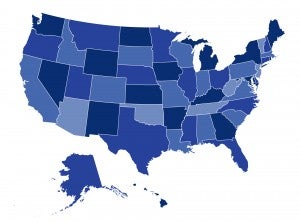
By Maanasa Kona, Jack Hoadley, and Katie Keith
When a person with health insurance receives services from an out-of-network provider unknowingly, rather than from an in-network provider, it can result in what is called “surprise billing.” Most commonly, this happens during a medical emergency or when a patient inadvertently receives nonemergency services at an in-network facility from an out-of-network provider. When this happens, the insurer may not pay the bill or may pay only a portion of the bill and the out-of-network provider may bill the enrollee for the balance.
Some states have laws in place to protect consumers from these bills by requiring insurers to limit enrollee responsibility to no more than in-network cost-sharing amounts and by prohibiting providers from directly seeking payment of these bills from enrollees. But to fully address the issue, it is important to have standards that ensure quick and fair resolution of payment disputes between insurers and providers. Despite bipartisan support for balance billing protections, policymakers have struggled to identify a method for resolving payment disputes that is acceptable to both providers and insurers.
In their latest post for the Commonwealth Fund, CHIR faculty explore how the seven states that have adopted a payment standard for out-of-network bills have based the standard on different types of data sources: a predetermined fee schedule (like the Medicare fee schedule), which sets a reimbursement amount for each service; publicly available data from multiple insurers, like a state-run all-payer claims database; and insurers’ internal data on amounts they have agreed to reimburse in-network providers. Read the full post here.
In a separate post, available here, Jack Hoadley and Maanasa Kona assess the experience of states that use an independent dispute resolution process to determine the amount insurers pay providers for out-of-network services.

